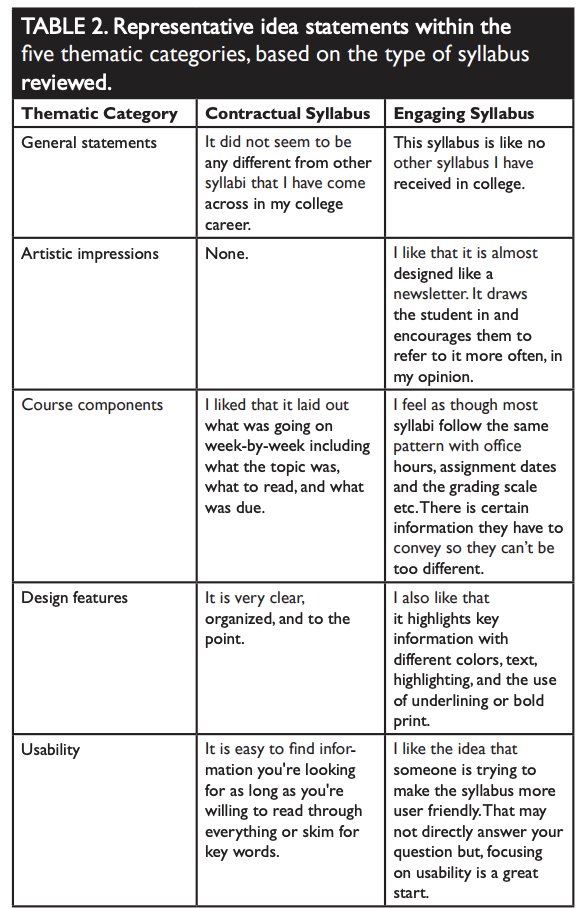1) Motivating students to #ReadtheSyllabus is always a challenge. Admittedly, it's not the most engaging part of most courses. There are welcoming and engaging ways to *design* them. Here are some strategies such as creating:
2a) a decolonized syllabus - see @yvettedontlie: https://yvettedechavez.com/blogs/news/its-time-to-decolonize-that-syllabus
2b) "Decolonize Your Syllabus" video by @UofSC:
3) a liquid syllabus to #humanizeOL (by @brocansky): https://brocansky.com/2020/06/humanizing-pre-course-contact-with-a-liquid-syllabus.html
4) an inclusive syllabus - here are lots of suggestions by @isucelt: https://www.celt.iastate.edu/teaching/preparing-to-teach/how-to-create-an-effective-syllabus/inclusive-examples-syllabi/
4) an inclusive syllabus: ahttps://www.celt.iastate.edu/teaching/preparing-to-teach/how-to-create-an-effective-syllabus/ . .
5) a learner-centered syllabus https://onlinelibrary.wiley.com/doi/full/10.1002/tia2.20004 (& rubric developed by @cte_uva: https://cte.virginia.edu/resources/syllabus-rubric):
6a) a graphic syllabus: https://files.eric.ed.gov/fulltext/EJ1137832.pdf
6b) a visual syllabus: https://thevisualcommunicationguy.com/2017/08/14/how-to-turn-your-syllabus-into-an-infographic/
6c) here are lots of visual examples: https://bit.ly/3l8pgmw
7) an "easter egg syllabus" to add a game-like component to the syllabus: https://bit.ly/3gecoaM
8) an engaging (vs a contractual) syllabus: https://files.eric.ed.gov/fulltext/EJ1134516.pdf
9) an online syllabus: "Exploring the Effects of Different Online Syllabus Formats on Student Engagement and Course-Taking Intentions": https://bit.ly/3gdB5Ek
10) alternatively, incorporate a scavenger hunt: https://bit.ly/2YnyUrs
11) No matter what - as Snoop Dogg says, "the more you know, the further you go" - so investing some time in the design of the syllabus will likely pay off:

 Read on Twitter
Read on Twitter




